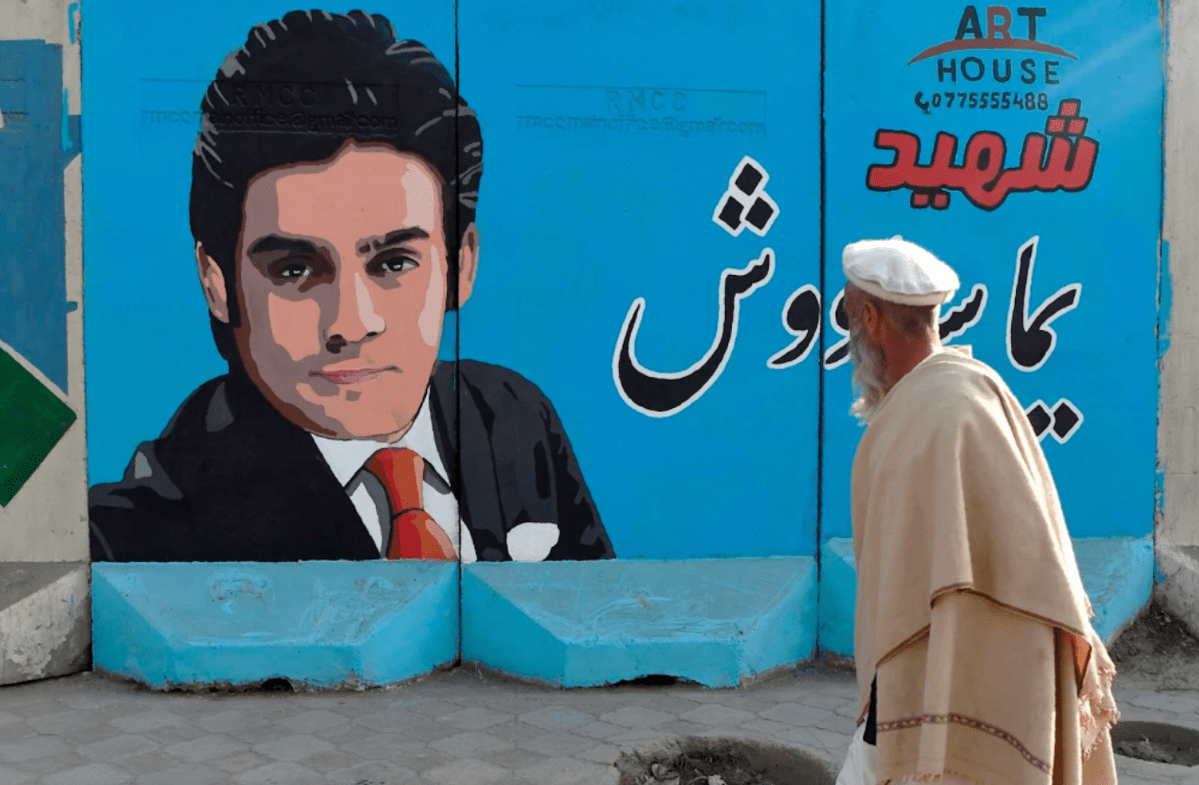[ad_1]
It’s a very simple operation, really.
As the target vehicle reaches the critical point, a small child weaving through traffic comes up to the driver’s window.
Instinctively, the driver reaches for some spare change lying in the console, unaware the distraction is allowing a second person to place a sticky bomb in the wheel well.
A short distance away, the lookout waits for the crew to head to safety — a pre-programmed phone number is dialled.
The last digit remotely triggers the sticky bomb — made of explosives and a magnet attached to a mobile phone — destroying the car, its occupants, and also injuring anyone else nearby.
The primitive devices, sometimes made in mechanics’ workshops for as little as $25, are the newest weapons terrorizing Afghans in the increasingly lawless nation, as Washington searches for a responsible exit after decades of war, Associated Press reported.
Over the past year, one or more cars have been exploding in Kabul almost every day and residents are terrified.
The use of sticky bombs is relatively new in the Afghanistan capital, former interior minister Masoud Andarabi told AP.
“What is new is that they (attackers) have created a simple model,†he said, noting that sticky bombs are easy to make and easy to carry.
Some victims are targeted, while others appear to have been chosen at random, with the aim of terrorizing an entire population, Andarabi said.
One motive appears to be to undermine faith in peace efforts among ordinary Afghans, with the Taliban and the government blaming each other for the chaos, AP reported.
Tactics vary, say security forces.
A new ruse is to drop the sticky bomb from inside a hole cut near the gearshift of the attacker’s vehicle as the target vehicle approaches from behind. When the target is over the small bomb it is detonated.
There is no shortage of recruits from the city’s poor, who make up roughly two-thirds of Afghanistan’s 35 million people, AP reported.
 The pace of killings has accelerated since intra-Afghan peace talks began in September, and in the wake of a February 2020 cease-fire agreement between the US and the Taliban that critics say encouraged the militants to operate with more impunity.
“The US paved the road for these killings,†says one Afghan journalist in hiding, who asked not to be identified. “They abandoned us.â€
Most of the mechanics in Kabul’s destitute Shah Shaheed area, knew Abdul Sami, 30, who was recently arrested and accused by security forces of putting sticky bombs on random cars, not particularly targeting anyone, AP reported.
Like the other mechanics, Sami was poor, making around $6 on some days and nothing on many other days, said Massoud, a mechanic who wanted to give only his first name.
Since Sami’s arrest, police and security personnel have hovered in the area, interrogating mechanics, watching them.
Sticky bombs have targeted journalists, members of the judiciary and reformers from Afghanistan’s nascent civil society, AP reported.
Andarabi blamed the Taliban, while the insurgent group pointed the finger at the security forces, claiming they use the bombings to discredit the Taliban and sabotage peace talks to stay in power.
The administration of President Joe Biden has alternated between coaxing and sharp words — even offering a ready-made peace proposal — to hurry the Taliban and the Afghan government toward an end to the conflict, AP reported.
Meanwhile, a former intelligence chief said mechanics are typically just pawns in the network that plans these attacks.
“They’re not ideologues. Someone like the mechanic is just poor, maybe even threatened: ‘If you don’t do this then your family will be in danger.’ I think then anyone would do it,†said Rahmatullah Nabil, a former head of Afghanistan’s intelligence, known as the NDS.
A top security expert told Asia Times, that sticky bombs can, in fact, be foiled.
“They are cheap and effective — the Taliban has always been very creative,†said the expert, who chose to remain anonymous.
“These could be defeated by relatively low power jammers as you are only protecting the area of your car,†he said.
Sources: Associated Press, Rolling Stone
[ad_2]
Source link













